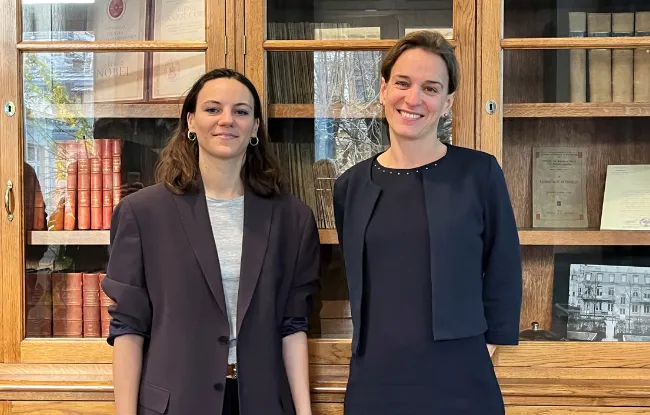- Home >
- Institut Curie News >
- Claire Wilhelm earns an ERC grant for the NanoBioMade project
The therapeutic options offered by magnetic nanoparticles or extracellular vesicles seem to make them essential for the medicine of the future, in particular oncology. Nonetheless, in order for these innovative therapies to become essential tools, we need to make sure they are free of the risks of possible toxicity of the nanoparticles, or solve the cost of bio-production of the vesicles.
The European Research Council NanoBioMade project, led by Claire Wilhelm, research director (DR1) in the Macromolecules and Microsystems in Biology and Medicine team (MMBM) in the Curie Physical Chemistry laboratory (PCC, UMR168), proposes magnetic bio-engineering of extracellular vesicles, which will be performed only by the cells themselves. Indeed, the team has just shown that human stem cells are able to perform a biogenic synthesis of magnetic nanoparticles, which can be compared to the presence of magnetic crystals in our bodies (in particular in the brain). This synthesis now has to be implemented using non-magnetic iron salts, via biochemical and molecular biology approaches. In parallel to this magnetic biosynthesis, breakthrough technologies (optical, hydrodynamic, microfluidic) will be explored to produce extracellular vesicles in bulk, while making them magnetic, via encapsulation of chemical or biogenic nanoparticles.
The final “bio-made” vector produced exclusively by our stem cells should combine the assets of nanoparticles (hyperthermia, imaging, magnetic guiding) and those of vesicles for diagnosis and targeted and personalized therapies, into a unprecedented vector with a possibly unrivalled cancer fighting potential.
Through this ERC grant, the team will be able to continue these studies for 5 years, starting in February 2021.


